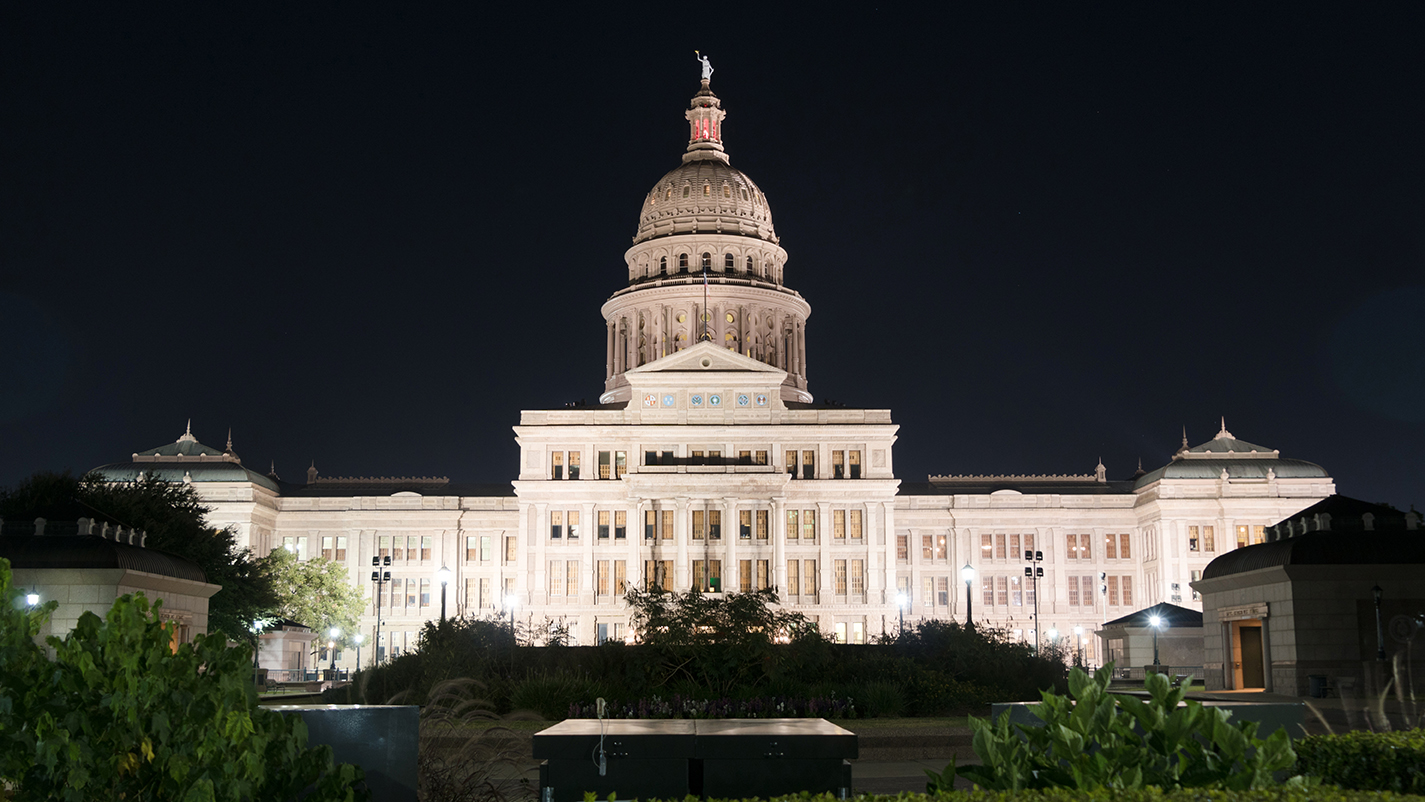Are Private Charities Able to Provide for Americans Currently on SNAP?
On Wednesday, May 26, 2021, True Charity Initiative Executive Director James Whitford testified before the U.S. House of Representatives’ Committee on Agriculture. During that hearing, Vice-Chair Alma S. Adams (D-NC) posed the following question:
“Do you believe that private charities and nonprofits could immediately and effectively provide for the 42 million Americans who are currently supported by SNAP?”
Although James did not have the opportunity to respond during the hearing, he submitted the following addendum to his testimony in order to address this question.
June 4, 2021
To the Chair and Members of the Nutrition, Oversight and Department Operations subcommittee:
Again, thank you for the opportunity to share my testimony at the recent hearing on May 26, The Future of Snap: Moving Past the Pandemic.
I’m taking the opportunity to respond to vice-chair Adams’ question in writing since her time had expired prior to my response. The question was, “Do you believe that private charities and nonprofits could immediately and effectively provide for the 42 million Americans who are currently supported by SNAP?”
Thank you for the question vice-chair Adams and I’m sorry our time didn’t allow me to respond while we were together virtually.
In one regard, the question encourages me – if the number of Americans dependent on SNAP were low enough, might you be favorable toward such an idea?! If that is indeed the case, then it stands to reason you may also be in favor of the program’s privatization if there were enough private nonprofits and churches who could do the job. We should hope!
Even though I have no doubt of the private sector’s capacity to feed the hungry in America, I certainly assert that “immediately” and “effectively” are mutually exclusive. We could do so “immediately and chaotically” but a thoughtful and effective plan would require time. That said, I am hopeful we can all agree that 1 American or 42 million Americans “supported by SNAP” is not optimal and that our common ground upon which to rally together is to see as few people as possible supported by the government. This reminds me of some words written by one of my favorite Presidents, Democrat Grover Cleveland, when he vetoed the Texas Seed Bill of 1887:
“A prevalent tendency to disregard the limited mission of this [government] power and duty should, I think, be steadfastly resisted, to the end that the lesson should be constantly enforced that, though the people support the Government, the Government should not support the people.”
In further justifying his dissent, he pointed to the great strength of American charity, demonstrating his remarkable and beautiful faith in the generosity and neighborliness of American citizens. He also commented on the risk “federal aid” poses to the bonds between people.
“The friendliness and charity of our countrymen can always be relied upon to relieve their fellow-citizens in misfortune. This has been repeatedly and quite lately demonstrated. Federal aid in such cases encourages the expectation of paternal care on the part of the government and weakens the sturdiness of our national character, while it prevents the indulgence among our people of that kindly sentiment and conduct which strengthens the bonds of a common brotherhood.”
There are other great thinkers who saw the danger of people “supported” by government programs. In Alexis de Tocqueville’s observations of American life in Democracy in America, he recorded his amazement of Americans’ tendencies to associate. He foresaw the growth of government and the threat it would pose to those natural, communal relationships, writing:
“The task of the governing power will therefore perpetually increase, and its very efforts will extend it every day. The more it stands in the place of associations, the more will individuals, losing the notion of combining together, require its assistance.”
My intent here is not a history lesson. I simply argue that throughout American history, whether a Democrat President or a French philosopher, leaders have realized that “support” on the Federal Government has a myriad of disruptive effects that adversely impact the natural affiliations within family and community.
To continue examining private sector capacity, I am not able to estimate the reduction of SNAP enrollees if effective and empowering charity took over. Certainly, without the current and easy path to liquidate and abuse the benefit, not to mention the attrition of able-bodied adults who take advantage of the program unnecessarily, there would be a significant reduction representing a more accurate and true need for food.
One church in my city partnered with an organization called the Pack Shack who facilitates “funnel parties.” The entire church assembled on a Sunday and instead of a sermon, they packed 40,000 meals during their normal two service times. These meals are dry-stored, nutritious and they even taste good. I know – it’s a drop in the bucket, but it was one church on one Sunday. There are approximately 380,000 churches in the United States. If half of them did the same just twice per year, it would provide a meal to each of those 42 million people every day.
Even my small mission provides more than 60,000 hot meals each year and nearly that in additional pounds of food for families in need. Our mission is just one of more than 300 in the Citygate Network of missions that prepare and serve more than 50 million meals annually.
I’m sure you’re grateful for the hard work of these amazing compassionate soldiers fighting for social justice. I also imagine you would love to see people fed and cared for by their neighbors, local churches and communities. If so, then you would naturally hope SNAP to be merely “supplemental” to what’s being provided by those more meaningful sources. Unfortunately, it’s not. An unemployed homeless man yesterday shared a letter with me sent to him from our state’s DSS office regarding his SNAP benefits. It reads, “The amount of benefits you will continue to receive are: $234.00 thru 05/2022.” Certainly, you’d agree this amount is more than “supplemental” for a man who is being fed by the mission where he currently resides. Certainly, this indicates the number 42 million is woefully inflated compared to real need.
No less important than my confidence in private charity to meet the true need is the assumption I perceive behind the question you asked. The use of that overwhelming number, 42 million, causes most minds to quickly couple quantity with justification. However, the number of people subscribing to any sort of thing does not necessitate its justification, regardless of the quantity who subscribe. If it were not so, then communism could be justified by the number of communists or mob-rule by the quantity of the mob. If we so readily justify USDA’s SNAP program, we must also toss out, among many other things, those valid and thoughtful arguments put forth by a few of our Founders in the Federalist Papers as they argued for a federal government but assured a newly liberated people that it would never grow beyond its enumerated powers. In number 41, Madison reassures us:
For what purpose could the enumeration of particular powers be inserted, if these and all others were meant to be included in the preceding general power? Nothing is more natural nor common than first to use a general phrase, and then to explain and qualify it by a recital of particulars.
And in number 45:
The powers delegated by the proposed Constitution to the federal government are few and defined. Those which are to remain in the State governments are numerous and indefinite.
As radical as it may seem to anyone in our culture today, I believe more justified than any government program is the expectation that the Federal Government should restrain itself to that list of “few and defined” powers. It is not so much that I argue for diminishing government as it is that I desire to magnify people. However, the more power the government holds, the less the people are empowered. Empowerment does not come by the simple transfer of wealth, but at the moment a person realizes he or she can create it for himself. So, the more the government grows in its unmerited transfer of wealth to the poor, the less the poor person will find the flourishing life and freedom for which he or she was created. Certainly, none of us should embrace such a perversion of justice.
I am not asking you to close the SNAP program tomorrow. I only hope you’ll consider that the involvement of the Federal Government in helping people in my community has also brought its share of hurt. At least, I ask you to consider the following:
- Do not expand the program as our economy regains its footing.
- Require work from able-bodied adults without dependents.
- Seriously consider how the program could be turned over to the States.
Lastly, please remember that the excellence of our nation stems in great part from its establishment as a republic. We were never intended to, nor should we be a nation ruled by mob nor by an elite aristocracy, but by the people. In his letter to John Taylor in 1816, Thomas Jefferson wrote;
“The further the departure from direct and constant control by the citizens, the less has the government of the ingredient of republicanism.”
Thank you for working with me to realize a grander America in which we have rightfully returned to the citizenry’s direct and constant control that which it does best; love and care for neighbors in need.
James Whitford
FURTHER RESOURCES




